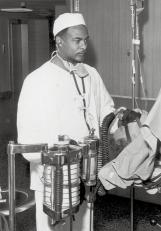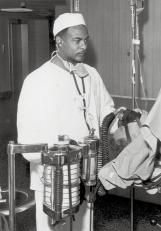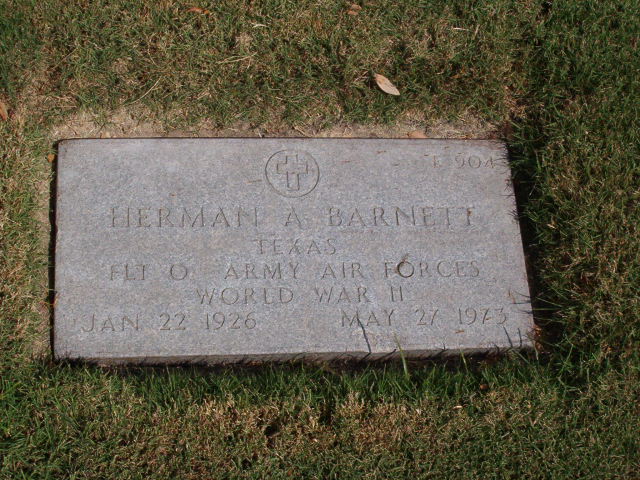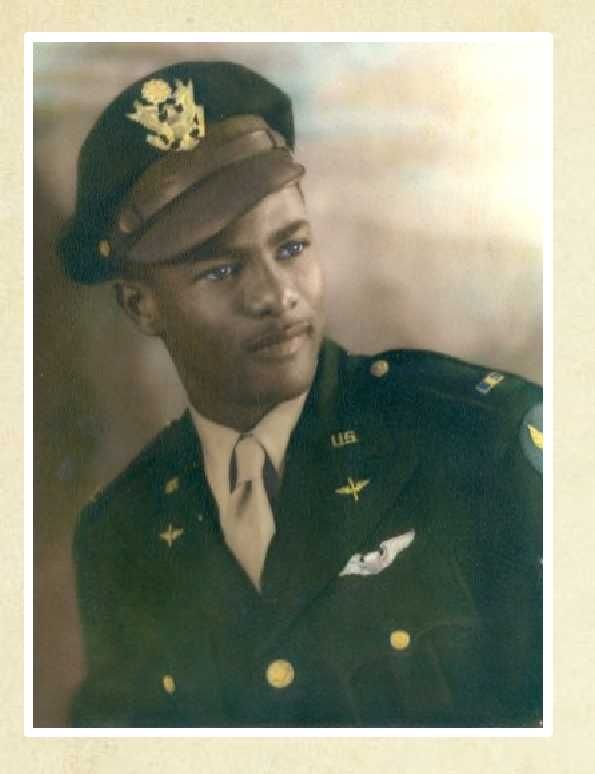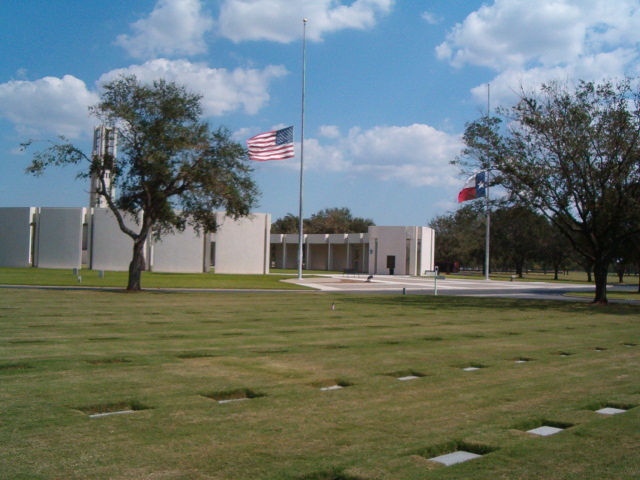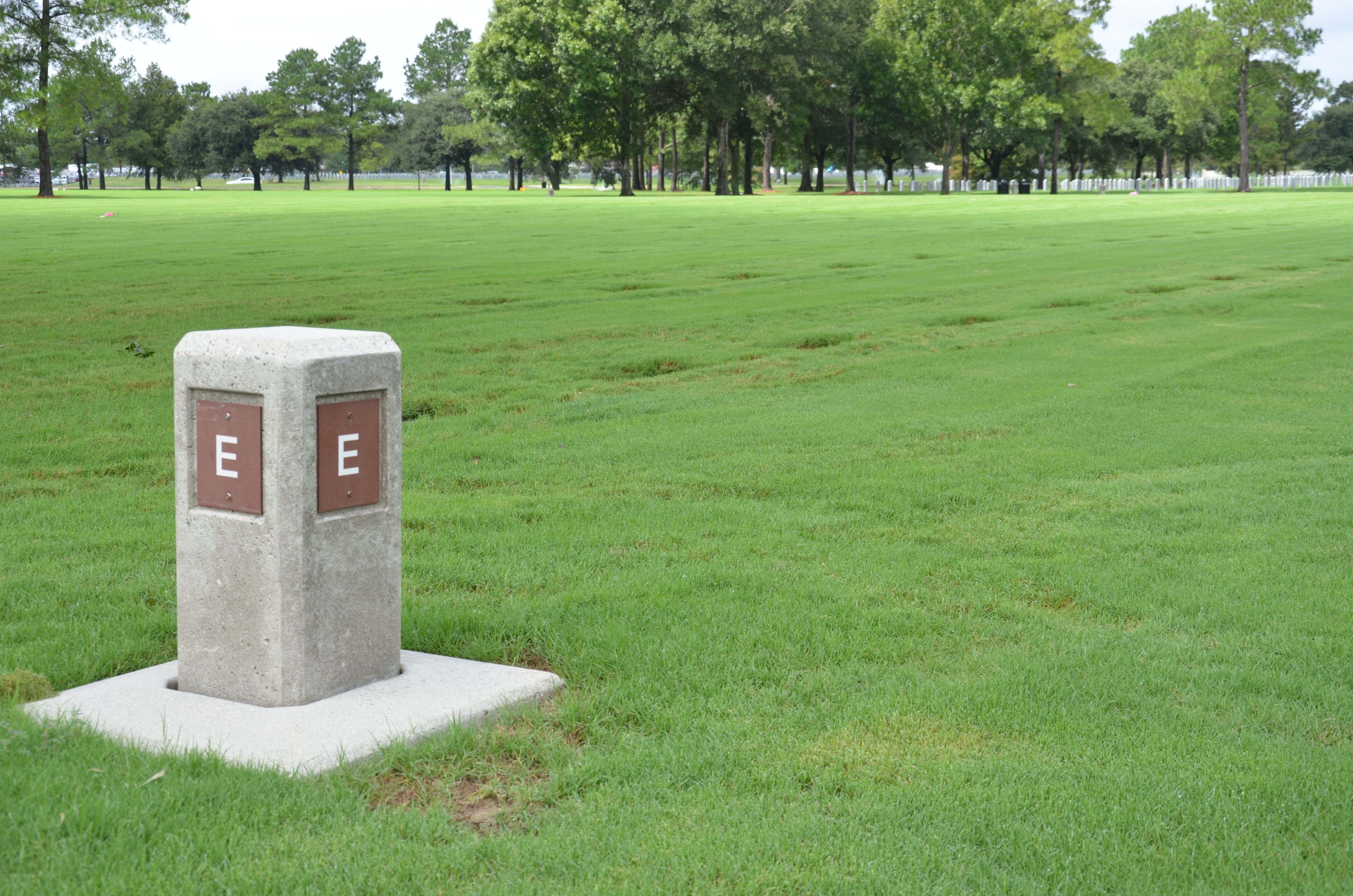Barnett began classes at UTMB in 1948, arriving each day impeccably attired in suit and tie. Medical school was difficult for the lone black student. It was so tough that there were courses where he was not allowed to sit in the classroom. Barnett aced a microbiology course while taking notes in the hallway. He was very much admired by people in his class as well as his instructors at every level. Barnett grasped difficult concepts quickly and helped explain them to his peers. Barnett's most violent encounter with racism came the year he graduated, Williams said. A sheriff's deputy stopped Barnett for speeding and noticed his class ring. "Where did you steal it from?" the deputy asked. The deputy beat Barnett when he answered that he was a graduate. They never did return his ring. Realization of the difficulties Barnett encountered because of his race after students boarded a Galveston bus on the way to a football game. The driver ordered Barnett to the back of the bus. Barnett moved to the back, but another student became angry, saying, "I'm not going to ride on the bus with this kind of discrimination." They got off the bus, and Barnett tried to calm his ali. "You can't get angry over ignorance," he told him. The student later said about Hermann, "He, of course, was correct. I realized that Hermann was not only superior intellectually, but had a superiority of spirit as well." A new exhibit honoring Dr. Hermann A. Barnett, III, the first African American to enroll and graduate medical school in Texas, will opened Sept. 25, at the Moody Medical Library, Ninth and Market streets on the University of Texas Medical Branch at Galveston campus. A reception wias held in the library foyer. Dr. Barnett graduated from UTMB in 1953. He was a man of many "firsts" including the first African-American to serve on the Texas State Board of Medical Examiners and the first African American to be elected president of the Houston ISD Board of Trustees. Before medical school, Barnett served as a Tuskegee airman fighter pilot with the U.S. Army Air Corps. Dr. Barnett was a remarkable, gentle man and a role model and mentor to many young people. His life is an example of what men and women of character can accomplish despite obstacles. The father of five children, including Dr. Marcus Barnett who graduated from UTMB in 1984. Dr. Barnett died in a 1973 plane crash at the age of 47, leaving a wife and five children, two of whom became doctors. The university posthumously honored Barnett as a distinguished alumnus. A School of Medicine Memorial Scholarship student award is named in his honor and Clifford W. Houston, Ph.D. holds the Distinguished Professorship in microbiology and immunology endowed in Barnett's name.
Barnett began classes at UTMB in 1948, arriving each day impeccably attired in suit and tie. Medical school was difficult for the lone black student. It was so tough that there were courses where he was not allowed to sit in the classroom. Barnett aced a microbiology course while taking notes in the hallway. He was very much admired by people in his class as well as his instructors at every level. Barnett grasped difficult concepts quickly and helped explain them to his peers. Barnett's most violent encounter with racism came the year he graduated, Williams said. A sheriff's deputy stopped Barnett for speeding and noticed his class ring. "Where did you steal it from?" the deputy asked. The deputy beat Barnett when he answered that he was a graduate. They never did return his ring. Realization of the difficulties Barnett encountered because of his race after students boarded a Galveston bus on the way to a football game. The driver ordered Barnett to the back of the bus. Barnett moved to the back, but another student became angry, saying, "I'm not going to ride on the bus with this kind of discrimination." They got off the bus, and Barnett tried to calm his ali. "You can't get angry over ignorance," he told him. The student later said about Hermann, "He, of course, was correct. I realized that Hermann was not only superior intellectually, but had a superiority of spirit as well." A new exhibit honoring Dr. Hermann A. Barnett, III, the first African American to enroll and graduate medical school in Texas, will opened Sept. 25, at the Moody Medical Library, Ninth and Market streets on the University of Texas Medical Branch at Galveston campus. A reception wias held in the library foyer. Dr. Barnett graduated from UTMB in 1953. He was a man of many "firsts" including the first African-American to serve on the Texas State Board of Medical Examiners and the first African American to be elected president of the Houston ISD Board of Trustees. Before medical school, Barnett served as a Tuskegee airman fighter pilot with the U.S. Army Air Corps. Dr. Barnett was a remarkable, gentle man and a role model and mentor to many young people. His life is an example of what men and women of character can accomplish despite obstacles. The father of five children, including Dr. Marcus Barnett who graduated from UTMB in 1984. Dr. Barnett died in a 1973 plane crash at the age of 47, leaving a wife and five children, two of whom became doctors. The university posthumously honored Barnett as a distinguished alumnus. A School of Medicine Memorial Scholarship student award is named in his honor and Clifford W. Houston, Ph.D. holds the Distinguished Professorship in microbiology and immunology endowed in Barnett's name.
Sponsored by Ancestry
Advertisement
Advertisement
